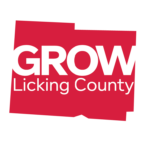GROW Licking County focuses on three (3) pillars of economic development – business attraction, business retention, and workforce development. As we meet with our local employers, a common topic that comes up when discussing hiring is the need for soft skills development within the emerging workforce. Unfortunately, many students leave high school and even college without fully developing these foundational skills. This gap not only affects individual career growth but also impacts the overall productivity and cohesion of the workplace.
Soft skills such as communication, reliability, teamwork, and professionalism remain critical limiters for student success during and after their education. These skills are highly demanded by employers and universities.
A taskforce of Licking County educators, curriculum advisors, superintendents, and community partners is actively working together to explore meaningful solutions to bridge the soft skills gap. Recognizing that this is not a challenge that can be addressed passively or through one-size-fits-all approaches, the group is emphasizing the need to be strategic, proactive, and innovative in developing these competencies in students.
Communication
Clear and effective communication is at the heart of every successful interaction, whether in the classroom, workplace, or community. For students, strong communication skills enable them to articulate ideas, ask thoughtful questions, and engage meaningfully with peers and mentors. In the workplace, the ability to listen actively, speak confidently, and write professionally can influence everything from job performance to career advancement. Employers consistently emphasize that employees who communicate well are better collaborators, problem-solvers, and leaders.
Reliability
Being dependable is one of the most valued traits in any workplace. Reliability means showing up on time, meeting deadlines, and following through on commitments. For students, learning to manage time, take responsibility for their actions, and be consistent in their efforts helps build trust with teachers, coaches, and future supervisors. When students develop reliable habits early, they carry that accountability into their academic, personal, and professional lives.
Teamwork
Teamwork helps students learn how to contribute to group goals, adapt to different perspectives, and build strong working relationships. Being a true team player involves active listening, showing empathy, staying flexible, and respecting the strengths and ideas of others. These qualities not only strengthen classroom and extracurricular experiences but are also highly valued by employers, especially in fast-paced or diverse work environments where effective collaboration is essential.
Professionalism
Professionalism is more than just dressing the part; it’s reflected in how students behave, communicate, and handle responsibility. It includes showing respect, taking initiative, responding to feedback positively, and acting with honesty and integrity. When students begin developing these habits early, they become better prepared for job interviews, internships, and future leadership roles. Demonstrating professionalism helps young people stand out as dependable and mature, showing educators and employers that they’re ready to represent themselves and their communities with confidence.
If you are interested in learning more about this initiative, contact Gabriel Kelvin at gk@growlickingcounty.org.

